Description
ABSTRACT
Liberalisation of Incorporation Process: An Evaluation of the Degree of Awareness of the Corporate Form by Promoters and Managers of Small Companies in Nigeria
Pereowei Subai*, Mark Amakoromo** & Damfebo Derri***
Since the incorporation process was liberalised in the 19 century, the company form has become the preferred platform for conducting business in light of its vast possibilities, privileges, and advantages. For Nigeria, the liberalisation of the incorporation process has led to a proliferation of small companies. Despite this proliferation, the literature points to a general lack of compliance by small companies with the requirements of company legislation in Nigeria, coupled with poor regulation by the regulatory body. In seeking answers to redress this situation, a key question worth answering is whether the proprietors of these companies are aware of the basic implications of incorporation and the extensive post-incorporation requirements imposed by Nigerian company law. To this end, this study, funded by the Tertiary Education Trust Fund (TETFUND), will entail a survey of the business community to test the awareness of basic tenets of company law by the proprietors of small companies in Nigeria. Questionnaires were distributed to 177 respondents (consisting of proprietors/promoters) across five states in the South-South region of Nigeria: Akwa Ibom, Bayelsa, Cross Rivers, Delta, and Rivers. This was aimed at testing the awareness of these proprietors of the basic implications of incorporation. Questionnaires were also distributed to 33 legal practitioners to determine their involvement in post-incorporation transactions relating to small companies. The study found that despite some general awareness by promoters of the basic implications of incorporation, the degree of unawareness by proprietors on its different aspects is not insignificant. Further, it confirms the general lack of compliance by small companies with company legislation in Nigeria, as stated in the literature. These findings form the basis for recommendations to the effect that the company form should be ‘reserved’ for medium to large businesses. Furthermore, small businesses should be encouraged to operate through alternative business forms such as Limited Liability Partnerships, Limited Partnerships, unincorporated partnerships and sole proprietorships. This would enable the Corporate Affairs Commission to strengthen the regulation of fewer entities. At the same time, state government regulators should be authorized to regulate smaller entities – a role for which they are better suited.
Keywords: Company legislation, incorporation process, promoters compliance, partnerships, unincorporated bodies
*PhD (Newcastle University), ACIS, Professor of Law and Head, Department of Property and Private Law, Niger Delta University, Wilberforce Island, Bayelsa State, Nigeria.
** LLM (Aberdeen), Doctoral Candidate (Dundee), Lecturer in Law, Niger Delta University, Wilberforce Island, Bayelsa State.
*** PhD (Ekpoma), ACIARB, Professor of Law and Dean, Faculty of Law, Niger Delta University, Wilberforce Island, Bayelsa State.

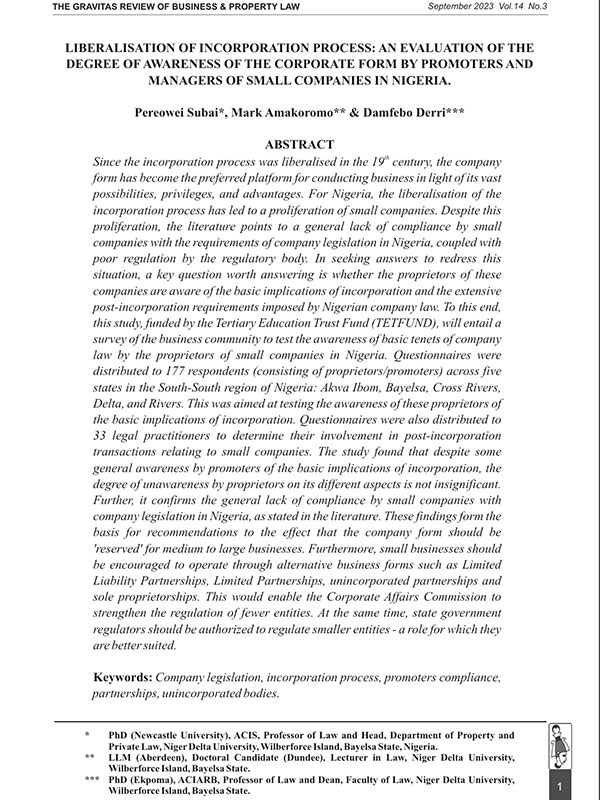
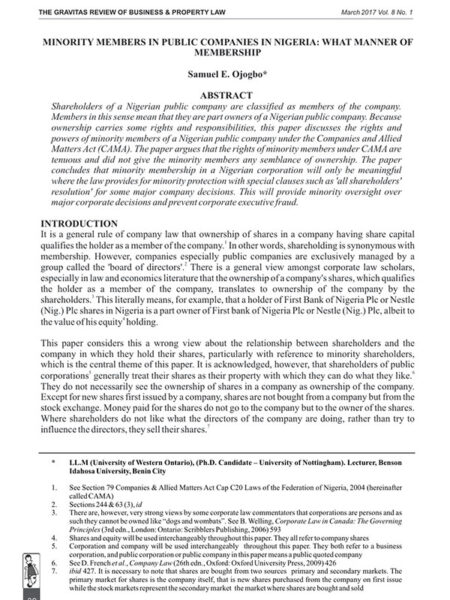
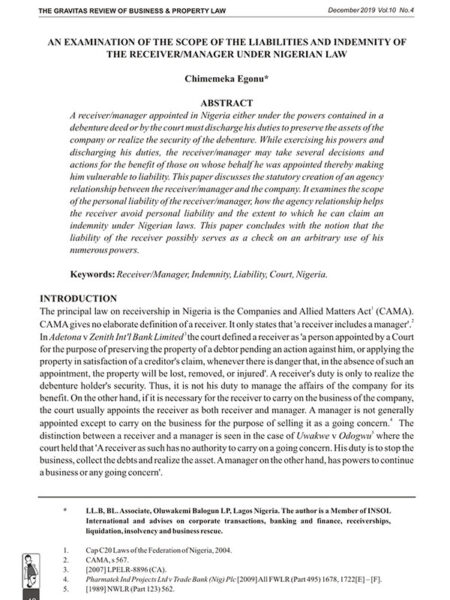
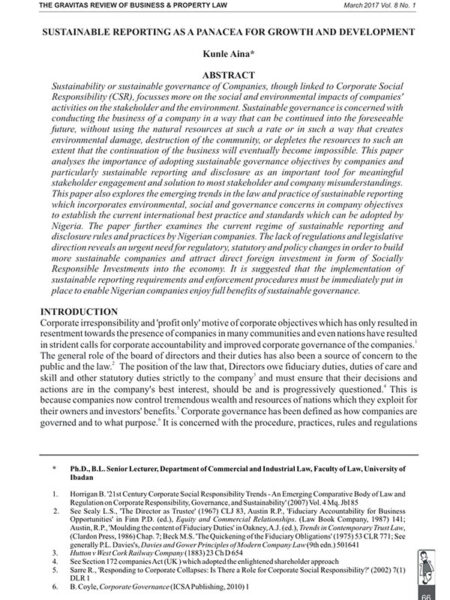
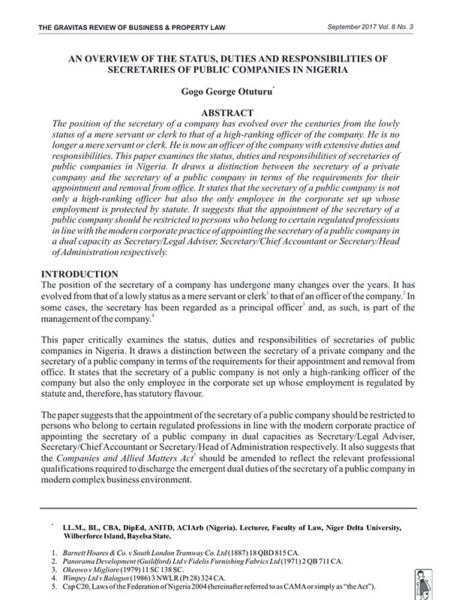


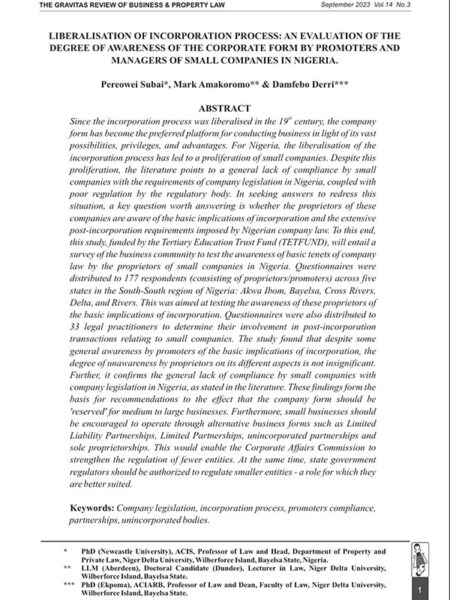
Reviews
There are no reviews yet.